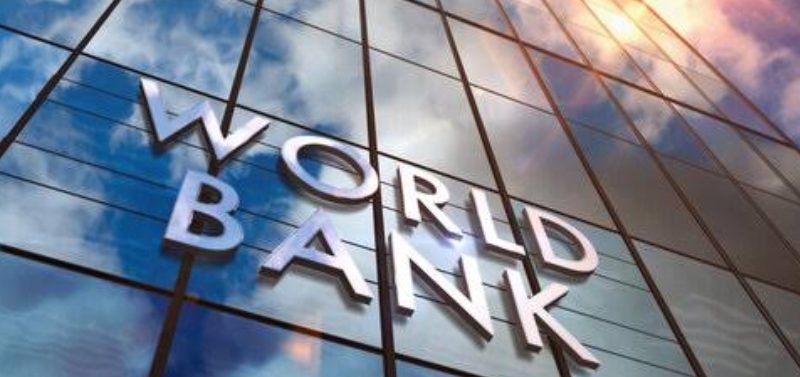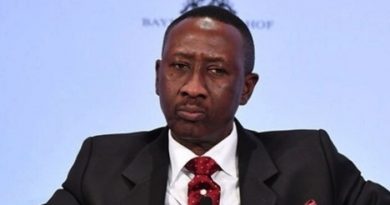Enough of IMF/World Bank puppets
By Nick Dazang
INDIVIDUALS, corporate entities and countries which succeed are those who plan for the long haul, provide for contingencies and keep their eyes firmly on the ball. They think long-term; they delay immediate gratification; and they deny themselves in the knowledge that things will turn out well in due course.
Such individuals, corporate entities and countries do not cut corners. They follow due process. They are transparent. They only tweak their policies to align with their long-term goal(s). Their leaders complement these qualities by demonstrating emotional intelligence; by delivering good governance; by demonstrating prudence; and by exuding respect and fellow-feeling for their compatriots.
It is against this backdrop that one is prompted to reflect on the homily preached by Indermit Gill, the Vice President of the World Bank Group. At the recent 30th Nigerian Economic Summit, Mr. Gill had said inter alia:i) that “Nigeria must stay the course for another 10 to 15 years of focused reforms. The difficult decisions today, will not yield immediate results, but they will set the foundation for a more prosperous and stable Nigeria”; ii) that the elimination of fuel subsidy and the floating of the Naira are necessary steps to stabilize and attract foreign direct investment(FDI);iii) that Nigeria should avoid the temptation of quick fixes; and iv) that periods of poor oil wealth management have left Nigeria trapped in cycles of boom and bust.
While the last observation is both apt and correct, especially as evidenced by a number of oil windfalls which were recklessly frittered away rather than their being invested either in the productive sector or infrastructure, his preachment was a mere sales pitch for the Bola Ahmed Tinubu administration and a stout defense of the World Bank Group. Nigeria has been carrying out IMF/World Bank reforms for decades. Pray, where have they led us, other than inflicting untold suffering on Nigerians and hurtling them downhill to a sorrowful abyss?
To suggest that we need another 15 years of unremitting and toxic reforms, as they are being implemented by the hubristic Tinubu administration, is simply wicked. At the end of the day nearly half of the population would have perished. As at now inflation has crossed the 33 per cent threshold. More than half the population of the country cannot afford a decent meal in a day. Big and small businesses continue to fold up. Youth unemployment continues to grow, by leaps and by bounds, thereby spawning misery, hopelessness, crime and worsening the country’s insecurity.
What is intriguing is that the IMF/World Bank do not proffer or insist on similar prescriptions to the avatars and champions of capitalism. While they egg on our leaders to withdraw subsidy on every conceivable area, they do not spur their counterparts in the U.S., U.K. or France to do the same. Apart from the fact that the above mentioned countries have put in place safety nets and unemployment benefits for their citizens, they subsidise many areas of endeavour chiefly to stimulate their economies and to succor their citizens.
According to INVESTOPEDIA, the UK subsidizes such sectors as health insurance, technology, housing, education, electric vehicles and sustainable solutions. French farmers this year received a subvention of $1.8 billion to pay for the diesel to power their machinery. The United States government subsidises several areas as well.
According to SUBSIDY TRACKER, one of the areas being heavily subsidised is the manufacture of electric vehicles and vehicle battery. Automakers such as Ford, General Motors and Volkswagen are reported to be the chief beneficiaries. Sixteen states in the US committed $10.7 billion of public money to support companies such as Amazon and Tesla.
It is thus a fallacy to argue that the only way to engender growth and prosperity is to pauperise the people, effect a wholesale removal of subsidy or to allow market forces to go on a rampage. It is also wicked, in the extreme, to continue to corral our Central Bank to go on a binge of increasing interest rates. How can businesses grow when interest rates are as high as 27.25 per cent as obtains in our country? Assuming a contractor were to borrow at such a highfalutin rate, not to add Withholding Tax and VAT, how much, at the end of the day, will accrue to him as profit? Does this sorry situation not explain why nearly zero investments and businesses are taking place locally? Compare our prevailing interest rate of 27.25 per cent with that of the US at 4.55 per cent; that of the U.K. at five per cent; and that of France at 2.90 per cent and one understands why our businesses cannot grow and therefore why the economy is stunted.
Compounding this is our suffocating inflation rate of 33.40 per cent(as at July 2024). Again, compare this with that of the US at 2.44 per cent; that of the UK at 1.7 per cent; and that of France at 1.5 per cent and it becomes clear that we cannot grow if we subscribe, wholesale, to IMF/World Bank pieces of advice/conditionalities.
Poverty of thought, not thought of poverty, by Owei Lakemfa
What we should do is to act, informed and guided by our realities and by our experts. Thankfully, we have a surfeit of them. Bar the brutality and the treasury looting, the General Sani Abacha years stand out for economic stability. The Naira exchanged at N88 to the Dollar, with a window of N22 to the Dollar for manufacturers and contingencies such as medical attention. Professor Sam Aluko led the economic team, which worked assiduously. It was also guided by our peculiarities.
We must find recourse in home-grown economic policies which resonate with our people and which address, squarely, their concerns. We must, henceforth, enthrone governments which are responsive, prudent, compassionate and keen to deliver good governance at the shortest possible time.
Dazang, a public affairs commentator/ analyst, wrote from Abuja.
(The Vanguard)




